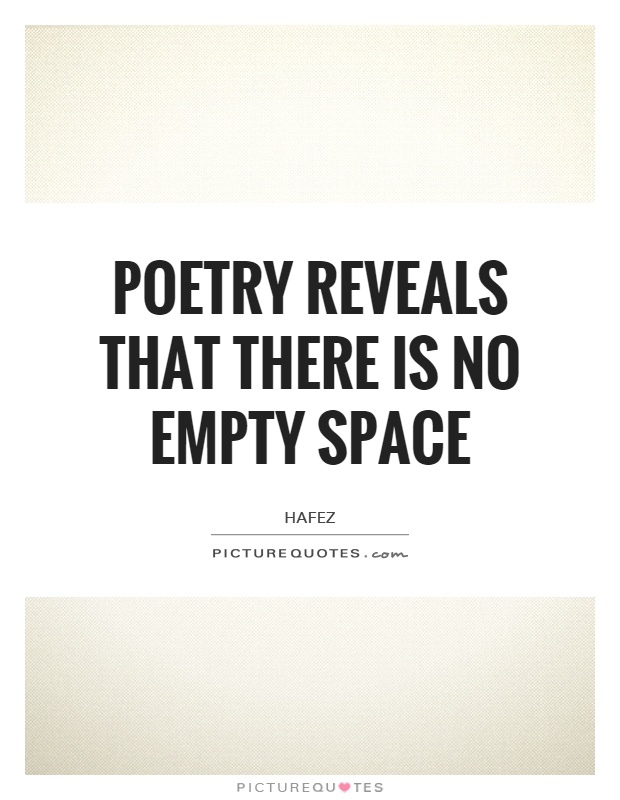Poetry reveals that there is no empty space

Poetry reveals that there is no empty space
Hafez, also known as Khwāja Shams-ud-Dīn Muḥammad Ḥāfeẓ-e Shīrāzī, was a 14th-century Persian poet whose works continue to resonate with readers around the world. His poetry is known for its depth, beauty, and spiritual insight, and it often explores themes of love, mysticism, and the human experience. One of the key aspects of Hafez's poetry is its ability to reveal that there is no empty space in the world or in the human heart.In Hafez's poetry, every word, every line, and every image is filled with meaning and significance. His verses are rich with symbolism and metaphor, inviting readers to delve deeper into the layers of meaning that lie beneath the surface. Through his poetry, Hafez shows us that even the smallest details can hold profound truths and insights about the nature of existence and the human soul.
One of the central themes in Hafez's poetry is the idea that love is the driving force behind all creation. For Hafez, love is not just a human emotion, but a cosmic principle that animates the universe and connects all beings. In his poems, he often uses the imagery of the beloved as a symbol of divine love, inviting readers to contemplate the mysteries of the heart and the soul.
Hafez's poetry also reveals that there is no empty space in the human heart. Through his verses, he explores the depths of human emotions, from joy and ecstasy to sorrow and longing. He shows us that every feeling, every experience, and every moment of our lives is filled with meaning and significance, and that even our darkest moments can be transformed into moments of beauty and grace.












 Friendship Quotes
Friendship Quotes Love Quotes
Love Quotes Life Quotes
Life Quotes Funny Quotes
Funny Quotes Motivational Quotes
Motivational Quotes Inspirational Quotes
Inspirational Quotes